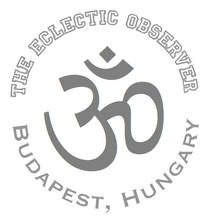
The new man in society - how is the sexual identity of men changing? E.g. why have men started shaving their armpits?
By Mona Monsefi
Let’s face it, men’s grooming habits are changing. While many still refuse to shave their armpits, we nonetheless see them wearing bright colors or feminine hairstyles, even plucking their eyebrows. They want to be on their best behavior when they mix with society, but at the same time, do whatever they want. Their biggest problem is that they don’t want to be recognized as homosexuals or accused of not having enough masculinity. But what does masculinity mean? Does it have a universal meaning? Masculinity describes the mentality, attitude and characteristics of men, which have different attributes in different cultures. Men have not physically changed, but the definition of the masculinity is changing and it changes men’s appearance, habits and attitudes.
Changing gender roles in society appear to be influencing men’s sexual identity. We see more and more men interested in such jobs as hairdressing and nursing than before versus women who are becoming more and more interested in historically “manly” jobs.
"Men who enter the profession have a natural flair for it,” said Andrew Parkes, senior hairdressing lecturer at South Tyneside College in the UK. “So it's no coincidence that many of the top stylists such as Toni and Guy, Trevor Sorbie, Andrew Collinge and Nicky Clarke are male.”
Gender roles have changed but society’s view toward women and men still gets hung up on stereotypes. Why do some people respect a woman architect but assume all male hairdressers are gay? Evidence suggests that the stereotype of the female secretary is what prompted the coinage “executive assistant” in order to describe the job in such a way that it would appeal more to men.
Has this legacy of stereotypes and prejudice caused men to fear being viewed as homosexuals?
“When confronted with males and females deviating from society's sex-based gender role prescriptions,” wrote Donald R. McCreary, professor of psychology at Canada’s Brock University, “people tend to respond more negatively to the males' transgressions.”
Maybe this is the reason men are hesitating to do some basic things such as shaving their armpits. On the one hand, men are encouraged to shave their armpits for reasons of hygiene and health. On the other hand, the advertising of men’s beauty products and even the appearance of certain film and media stars may serve to reinforce the stereotype of the gay male, thereby frightening other men away.
Women have their own ideas about men’s armpits.
“It’s their personal hygiene to stay clean,” said a female physiotherapy student. “Also, men without chest and armpits hair are sexier.”
An art student added that, “armpits cause more sweating and bad smell plus big wet circles on the men’s shirts thay are not really attractive.”
Men’s views about armpits are predictably somewhat different.
“To me what makes a man is the body hair,” wrote a gay male on Yahoo! answers. “I know plenty of women who prefer men to have their armpit hair. Why? Cause it makes a man manly! I am a gay male myself and I prefer my men with body hair. If I wanted really smooth skin, especially under the arms, I’d go out with a woman instead.”
How interesting! How can men say that growing armpit hair protects them from the accusation of homosexuality when a gay man says that it’s exactly armpit hair that he likes?
Ask a few straight men and your answers will be different still.
“That’s what is known as stereotyping. I'm straight and I've done it because I think it looks gross. But it didn't make me attracted to men,” said one straight male. Another added: “I don't look at a guy and judge his manliness on how much hair he has! By this reasoning girls would be manly too if they stop shaving. To all you people who are saying that hair makes a man: there's nothing masculine about armpits hair, women get just as much of it naturally”.
As we see, all these ideas are different from person to person and even within the same culture there is no fixed rules about that because people’s minds have been shaped by their believes during their lives. Every single thing can change our attitudes. Religious reasons are sometimes involved in our behaviors. In Islamic culture, both men and women practice the removal of underarm hair for religious guidelines of cleanliness. Fashion also can change our views and behaviors. For example, the Hippies of the 1960s as well as the peoples of primitive cultures, prefer to let their underarm hair flourish. This is common for both females and males of the culture, and often they wear clothing that is loose and exposes the underarm hair as an alternative fashion statement. But now, in 21st century’s fashion we see lots of super models and super stars with hairless bodies. There are also more and more advertisements for men’s hair removal products.
Men are surrounded with contradictory beliefs in the new society and it is hard for them to be whatever they want but some of them have found their own way to face all these things.
Although identifying masculinity and its symbols are differ from culture to culture but these days with mass media every movement that happens can change something in the whole world. We have started to make a homogeneous world. In this new society both men and women’s sexual identity is changing and unbelievably men’s new behavior such as highlighting hair and manicuring their nail are becoming as accepted as Scottish skirts for men.




